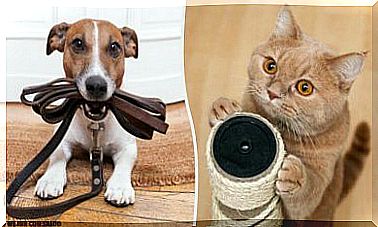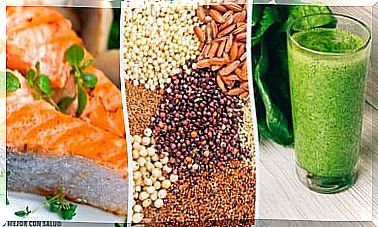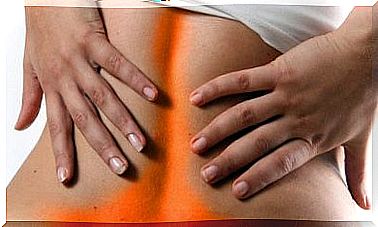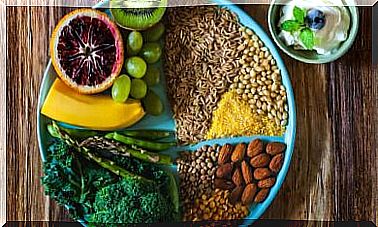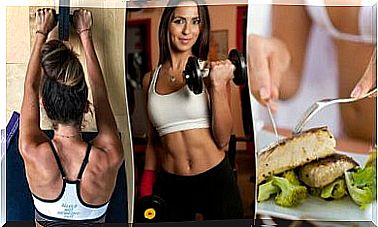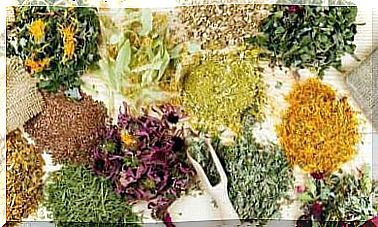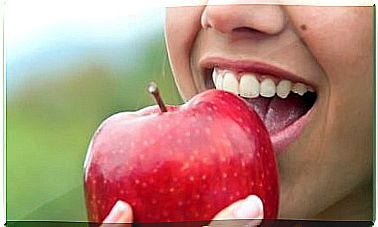All About Introducing Solid Foods To Babies
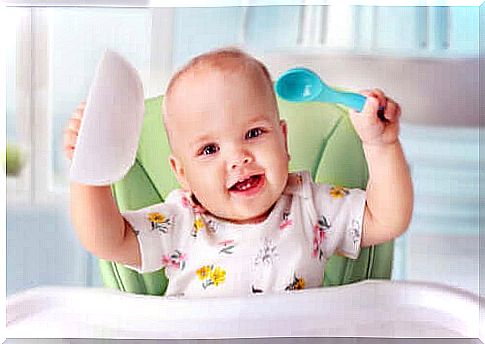
Introducing solid foods to babies is a delicate matter. It should be done gradually when a baby is a few months old.
During pregnancy, the placenta plays a role in the nutrition of the fetus. Therefore, the baby’s digestive system has to adapt after birth. This is why newborns do not tolerate all types of feeding.
In this article, we’ll tell you all about introducing solid foods to babies, how to know your baby is ready, the recommended foods, and some general guidelines to keep in mind.
Introducing solid foods: how do you know your baby is ready?
Babies should be exclusively breastfed during the first months of life. When your baby is six months old, you can start introducing solid foods. However, babies can continue to be breastfed until the age of two, while eating other foods at the same time.
In addition to age, a second element to take into account is related to height and weight. When babies are about four months old, they weigh twice as much as at birth.
In some specific cases, the need to introduce solid foods can be evaluated, although they would be specific exceptions that a pediatrician should indicate.
Other aspects to take into account are different signals that the baby’s body gives off. The following indicates that a baby is ready to tolerate solid foods. The baby:
- can sit and hold his head upright
- shows interest in food around him
- opens his mouth to get food in his mouth
- makes chewing gestures or movements
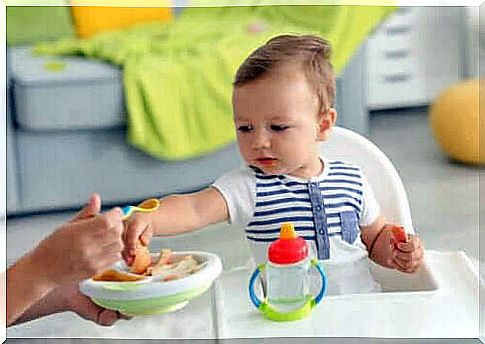
Recommended nutrition for this phase
You can include many different foods in your baby’s diet to start this phase. However, some are more recommended than others. Some of the recommended foods:
- Cereals. Rice, oats, corn or barley are foods rich in vitamins and minerals. In addition, they are important sources of fiber.
- Vegetables. They are rich in many different nutrients, even proteins. You can make good baby food from this.
- Fruit. This is very nice in itself. Preferably choose fresh fruit, not canned fruit.
- Food of animal origin. Meat and fish are rich in protein, vitamin A, iron, zinc, phosphorus and calcium. As for eggs, experts recommend waiting until the baby is at least a year old due to food allergies to test their tolerance with a small portion.
- legumes. They are the best source of protein of non-animal origin.
Introducing Solid Food In Babies: How To Do It
When it comes to introducing solid foods, it is important to ensure that the baby does not reject any new foods. While this may happen at first, you need to keep working on it.
You must first administer small amounts of food. Remember that babies eat much less food than adults. So you need to give their digestive system enough time to adapt to the change. So don’t get frustrated if your baby doesn’t eat much of the food.
Second, it is easier to introduce solid foods by alternating between breastfeeding or bottle feeding. This means that you should bottle or breastfeed your baby, then give him a teaspoon of solid food and then more milk. This is how the baby gets used to eating.
During the process, the baby may start playing with the food. Sometimes it ends up on their face, hands, bib, or floor, anywhere but their mouth. Don’t grumble at your baby or he may refuse the food next time.
Rather, you should talk to them softly and encourage them to eat. If your baby is crying or won’t open his mouth, it’s best to wait rather than insist.
Changes in Babies When They Start Eating Solid Food
When you start introducing solid foods, you will notice many changes in your baby. His stool will be firmer and its color and smell will also change. The urine also becomes more cloudy.
While some stools may contain indigestible food particles, don’t worry about this. The frequency of bowel movements can also vary and become less frequent. However, this is not a sign of constipation.
On the other hand, as your baby adjusts to solid foods, you will find that he will gain more appetite and eat larger portions. Little by little, they stop using their bottle or breastfeeding.
General Baby Food Recommendations
Here are some simple recommendations you should consider once you start introducing solid foods to your baby:
- Food they can eat with their hands. Usually at this stage you have to feed your baby with a spoon. However, you should let your baby take the food in his hand and eat it himself if he wants to. Just make sure he doesn’t take big bites.
- Try different foods. However, do not give your child many different foods at once. In other words, it’s best to feed them one type of food at a time. This way you know which food they like best. For example, try grains today, a vegetable puree tomorrow.
- Fruit juice. You can make fruit juices that you can bottle feed your baby, as long as the fruit is fresh. Do not add sugar to baby juices.
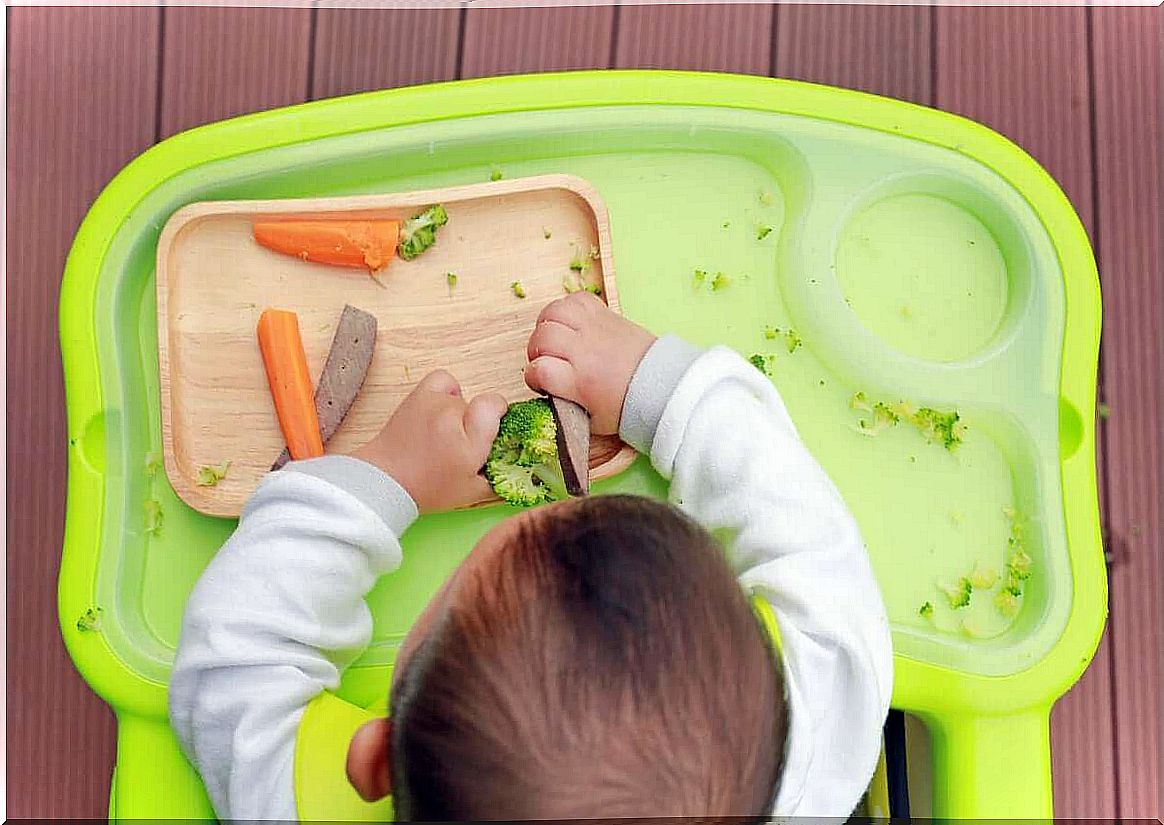
Not all solid foods are good for babies
Some parents may be concerned if their baby doesn’t eat a lot of solid foods at first. But it’s fine if a baby eats about 100 grams to start with so that he can adjust.
Some foods that you should not give your baby are canned foods, processed meats, canned foods, popcorn, and other foods that they can choke on. It is essential to check the size of the bites to avoid accidents.
Always try to puree the food so that your baby can swallow it properly. Do not give your baby food that is still whole. Finally, do not add salt or spices, as they are not necessary for their taste buds. They can even increase the risk of chronic diseases.
